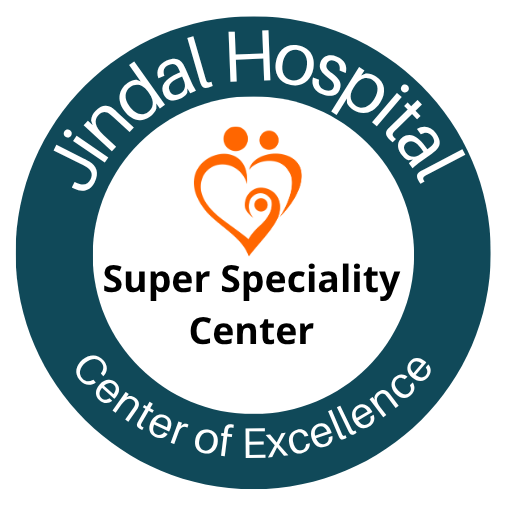Endometriosis: Understanding the Causes, Symptoms, and Treatment Options
Endometriosis is a complex and often painful condition that affects millions of women worldwide. It occurs when tissue similar to the lining of the uterus grows outside the uterus, typically on the ovaries, fallopian tubes, outer surface of the uterus, and other pelvic organs. This abnormal growth of tissue can lead to inflammation, scarring, and severe pain, particularly during menstruation. At Jindal Hospital & Fertility Centre, we are dedicated to providing comprehensive care and treatment for women dealing with endometriosis.
What Causes Endometriosis?
While the exact cause of endometriosis remains unknown, several theories exist regarding its development. One common theory is retrograde menstruation, where menstrual blood flows backward through the fallopian tubes into the pelvic cavity instead of leaving the body. This can cause the endometrial tissue to implant and grow outside the uterus.
Other factors that may contribute to endometriosis include:
- Immune system disorders
- Genetics
- Hormonal imbalances
- Environmental factors
Common Symptoms of Endometriosis
Endometriosis presents a range of symptoms that can vary in severity among individuals. These symptoms may include:
- Pelvic pain: Often described as cramping or sharp, stabbing pain that intensifies during menstruation.
- Painful intercourse (dyspareunia): Discomfort or pain during or after sexual intercourse.
- Heavy menstrual periods (menorrhagia): Excessive bleeding during menstruation, sometimes accompanied by clots.
- Painful bowel movements or urination: Especially during menstruation, due to the proximity of endometrial implants to the bowel and bladder.
- Infertility: Difficulty conceiving may be a symptom of endometriosis, as the condition can affect the function of the reproductive organs.
Diagnosing Endometriosis
Diagnosing endometriosis often requires a combination of medical history review, physical examination, and imaging tests such as ultrasound. However, the most definitive method of diagnosis is laparoscopy, a minimally invasive surgical procedure. During laparoscopy, a small camera is inserted through a tiny incision in the abdomen to visualize and potentially remove endometrial tissue for biopsy.
Treatment Options for Endometriosis
Treatment for endometriosis aims to manage symptoms, reduce inflammation, and improve quality of life. The approach to treatment may vary depending on the severity of symptoms and the individual’s reproductive goals. Treatment options may include:
- Pain Medications: Over-the-counter or prescription medications can help alleviate pelvic pain and discomfort caused by endometriosis.
- Hormone Therapy: Hormonal treatments such as birth control pills, hormonal IUDs, or gonadotropin-releasing hormone (GnRH) agonists are used to suppress menstruation and reduce the growth and activity of endometrial tissue.
- Surgery: If conservative treatments are not effective, surgical options may be considered. Surgery can help remove endometrial implants, cysts (endometriomas), or scar tissue (adhesions) to relieve pain and improve fertility.
- Fertility Treatments: For women experiencing infertility due to endometriosis, fertility treatments such as in vitro fertilization (IVF) may be recommended to improve the chances of conception.
Why Choose Jindal Hospital & Fertility Centre for Endometriosis Treatment?
- Expertise in Endometriosis Care: Our team of specialists at Jindal Hospital & Fertility Centre, led by Dr. Sunil Jindal and Dr. Anshu Jindal, has extensive experience in diagnosing and treating endometriosis.
- Advanced Treatment Options: We offer a comprehensive range of advanced treatment options for endometriosis, tailored to each patient’s specific needs and goals.
- State-of-the-Art Facilities: Our clinic is equipped with state-of-the-art technology and facilities to provide the highest standard of care for women with endometriosis.
- Holistic Approach: We take a holistic approach to endometriosis care, addressing not only the physical symptoms but also the emotional and psychological aspects of the condition.
- Patient-Centered Care: At Jindal Hospital & Fertility Centre, we prioritize open communication, patient education, and collaboration. We work closely with our patients to develop personalized treatment plans that align with their preferences and goals.
Living with Endometriosis
Living with endometriosis can be challenging, but there are ways to manage symptoms and improve quality of life. Some lifestyle modifications that may help include:
- Maintaining a Healthy Diet: Eating a balanced diet rich in fruits, vegetables, whole grains, and lean proteins can support overall health and reduce inflammation.
- Regular Exercise: Engaging in physical activity helps manage pain and supports mental well-being.
- Stress Management: Practicing relaxation techniques such as yoga, meditation, or deep breathing can help reduce stress-related symptoms.
- Support Groups: Connecting with others who have endometriosis can provide valuable emotional support and shared experiences.
Conclusion
Endometriosis is a chronic condition that requires ongoing management and care. At Jindal Hospital & Fertility Centre, we are committed to providing compassionate, comprehensive, and effective treatment for women with endometriosis.
If you are experiencing symptoms of endometriosis or have been diagnosed with the condition, we encourage you to schedule a consultation with us. Our team of experts, led by Dr. Sunil Jindal and Dr. Anshu Jindal, is here to support you on your journey to better health and improved quality of life.
The Do’s and Don’ts of Endometriosis: Tips for Managing Symptoms
Endometriosis is a chronic condition that can cause significant pain and discomfort for many women. While there is no cure, certain lifestyle habits and treatment strategies can help manage symptoms and improve quality of life. Here are some important do’s and don’ts for those living with endometriosis:
The Do’s of Endometriosis
- Educate Yourself
- Do: Learn about endometriosis, its symptoms, and treatment options.
- Why: Knowledge empowers you to make informed decisions about your health and treatment.
- Seek Support
- Do: Connect with support groups, online communities, or counseling services.
- Why: Sharing experiences provides emotional support and encouragement.
- Practice Gentle Exercise
- Do: Engage in low-impact activities like yoga, walking, or swimming.
- Why: Gentle movement can reduce stress and help manage pain.
- Maintain a Healthy Diet
- Do: Eat fruits, vegetables, whole grains, and lean proteins.
- Why: A balanced diet supports health and may reduce inflammation.
- Use Heat Therapy
- Do: Apply a heating pad to the abdomen during painful episodes.
- Why: Heat relaxes muscles and eases cramping.
- Consider Hormone Therapy
- Do: Consult your doctor about hormone-based treatments.
- Why: Hormone therapy can regulate cycles and reduce endometrial tissue growth.
- Keep Track of Symptoms
- Do: Use a symptom journal to note pain levels and triggers.
- Why: Tracking helps optimize your treatment plan.
- Practice Stress Management
- Do: Use techniques like meditation, deep breathing, or mindfulness.
- Why: Stress can worsen symptoms, so management is crucial.
The Don’ts of Endometriosis
- Don’t Ignore Symptoms
- Don’t: Dismiss ongoing pelvic pain or heavy periods.
- Why: Early detection improves outcomes.
- Avoid Trigger Foods
- Don’t: Consume highly processed foods, caffeine, or alcohol.
- Why: These can increase inflammation and pain.
- Limit Intense Exercise
- Don’t: Do high-impact workouts that strain the pelvis.
- Why: It may increase discomfort for some individuals.
- Don’t Delay Medical Care
- Don’t: Postpone visiting a doctor if symptoms worsen.
- Why: Timely treatment helps manage progression.
- Avoid Smoking
- Don’t: Smoke or be exposed to secondhand smoke.
- Why: It can worsen symptoms and affect treatment effectiveness.
- Don’t Skip Medications
- Don’t: Stop taking prescribed medications without consulting your doctor.
- Why: Regular treatment is essential for symptom control.
- Avoid Excessive Stress
- Don’t: Ignore mental well-being.
- Why: Stress can worsen inflammation and increase flare-ups.
- Don’t Delay Fertility Planning
- Don’t: Wait too long to discuss fertility with a specialist.
- Why: Endometriosis may impact fertility, so early planning is key.
Conclusion
Living with endometriosis requires a proactive and compassionate approach to symptom management. By following these do’s and don’ts, you can better manage your condition and enhance your overall well-being. Always work closely with your healthcare provider to develop a personalized treatment plan tailored to your needs.
If you’re experiencing symptoms or have been diagnosed with endometriosis, contact Jindal Hospital & Fertility Centre. Our expert team is here to support you with compassionate care and advanced treatment options.
Most Ask
FAQs About Endometriosis: Understanding the Condition and Treatment Options
Common Symptoms of Endometriosis
- Pelvic Pain: Often intensifies during menstruation and may persist throughout the month.
- Painful Intercourse (Dyspareunia): Discomfort or pain during or after sexual activity.
- Heavy Menstrual Bleeding (Menorrhagia): Excessive bleeding during periods, sometimes with clotting.
- Painful Bowel Movements or Urination: Particularly noticeable during menstrual periods.
- Fatigue: Constant tiredness that can interfere with daily activities and overall well-being.
- Infertility: Difficulty conceiving due to the impact of endometrial tissue on reproductive organs.
Treatment for Endometriosis
Treatment for endometriosis focuses on managing symptoms and improving quality of life. Depending on the severity of the condition and the patient’s reproductive goals, treatment options may include:
- Pain Medications: Used to alleviate pelvic pain and menstrual discomfort.
- Hormone Therapy: Helps suppress menstruation and reduce the growth of endometrial tissue. Options include birth control pills, GnRH agonists, and hormonal IUDs.
- Surgery: Removal of endometrial implants, ovarian cysts (endometriomas), and scar tissue to relieve symptoms and improve fertility.
- Assisted Reproductive Technologies (ART): Procedures like in vitro fertilization (IVF) may be recommended for women experiencing infertility related to endometriosis.
Lifestyle Changes to Help Manage Endometriosis
In addition to medical treatment, certain lifestyle modifications can support symptom management and improve overall well-being for individuals with endometriosis:
- Maintaining a Healthy Diet: Focus on a diet rich in fruits, vegetables, whole grains, and lean proteins to help reduce inflammation and support overall health.
- Regular Exercise: Engage in gentle physical activities like yoga, walking, or swimming to improve circulation and reduce pain.
- Stress Management: Incorporate relaxation techniques such as meditation, deep breathing exercises, or mindfulness to help manage stress, which can aggravate symptoms.
- Avoid Smoking and Excessive Alcohol Consumption: Both can negatively impact hormone balance and worsen endometriosis symptoms.

